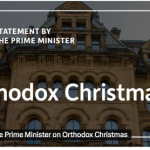Buying a home in Toronto has never been easy, and 2025 shows that the process now needs closer attention. Prices remain high, lending standards keep shifting, and new housing rules continue to shape how people buy and sell property across Ontario. For many families, the dream of homeownership now involves extra legal steps — from title transfers to broader disclosure rules. Understanding these updates isn’t just helpful; it’s what keeps a deal moving forward.
Toronto’s market has always been fast, but recent policy changes have introduced a slower, more deliberate rhythm. Provincial efforts to cool speculation and protect buyers have reshaped how offers are made and reviewed. At the same time, local governments are tightening property standards, and lenders are asking for more documentation at nearly every stage. In this new landscape, guidance from a qualified De Krupe Law Real Estate Lawyer can make the difference between a smooth closing and a long, stressful process.
The Legal Landscape Is Shifting
Ontario has brought in several updates that directly affect real estate transactions. New rules on bidding transparency and foreign ownership are meant to create fairer conditions, but they’ve also added paperwork and longer timelines for both buyers and sellers. These changes may sound procedural, but they can determine how fast your deal closes or whether your offer is accepted at all. Even a small omission, like forgetting a disclosure or misreading a tax rule, can now hold up a deal.
A key part of the Toronto housing laws 2025 focuses on verified proof of ownership and stronger financial screening. These changes protect consumers but also require more coordination between buyers, sellers, and their lawyers. For first-time buyers, the new structure can feel like navigating an unfamiliar process.

What It Means for Buyers
For buyers, preparation now matters more than ever. Mortgage applications go through tighter reviews, and lenders want clear proof of income and savings before giving approval. While these checks reduce fraud, they’ve also slowed financing. What once took a few days can now stretch into weeks.
Getting pre-approved early is no longer just routine, and it’s a smart strategy. Having your finances reviewed in advance defines your budget and tells sellers that you’re serious. Once your loan is in place, the focus turns to due diligence: inspections, appraisals, and title reviews that uncover potential issues before closing.
This is where legal support becomes crucial. A Toronto real estate lawyer examines every document, confirms ownership, and ensures the seller’s statements match the property’s actual condition. If something looks uncertain, your lawyer can request changes before any money moves. That step alone often prevents expensive surprises later.
Sellers Face Their Own Set of Rules
These new regulations apply to sellers just as much. Homeowners now need to provide detailed property information, including permits and records of previous work. Missing or incomplete details, even by accident, can lead to disputes or fines.
In today’s market, transparency earns trust. Sellers who present full documentation make negotiations easier and avoid delays. Verified title records and renovation histories also help prevent last-minute cancellations. Meeting with a lawyer before listing is simply good practice, a short consultation clarifies what needs disclosure and which documents should be ready for buyers.
The Rising Importance of Title Clarity
One of the most significant changes in Ontario’s real estate system is the sharper focus on title verification. Property title transfer Ontario procedures now include extra security steps to prevent fraud. Title theft and impersonation are growing concerns, especially in cities like Toronto and Vaughan. Fraudsters have used false IDs and forged papers to sell or refinance homes that weren’t theirs.
Now, each deal passes through several verification layers: identity checks, ownership confirmation, and sometimes in-person validation. These steps may extend the timeline a bit, but they protect everyone involved. Working with a real estate lawyer ensures these safeguards are applied properly and your ownership rights stay secure.

Planning Around Hidden Costs and Delays
Another effect of these housing updates is the rise in smaller fees that come with most transactions. Adjusted municipal charges, title insurance, registration costs, and mandatory inspections can quickly add up. Many buyers focus only on the down payment and forget these extras, creating pressure near the end.
In Toronto’s fast-moving market, the best way to stay ahead is to plan for it. Keep two to three percent of your purchase price aside for closing adjustments and unexpected costs. That cushion helps if inspections or approvals take longer than expected. A situation that’s become especially common for Toronto buyers in 2025.
How to Navigate the New Reality
For both Toronto buyers and sellers, adapting to these shifts means staying organized and informed. If you’ve been following the city’s housing updates, you’ve probably noticed how quickly new rules appear. Start by checking the latest notices from Ontario’s Ministry of Housing or the City of Toronto. Then, put your team together early — a mortgage broker, an agent, and a lawyer who stays in close contact. When everyone’s on the same page, the process runs much more smoothly.
Ask questions whenever something feels unclear. Real estate laws evolve quickly, and advice that worked a year ago might already be outdated. A quick call with your lawyer can clear up confusion before it grows into a problem. Consistent communication saves time and prevents many of the delays that frustrate homeowners.
The Bottom Line
Toronto’s real estate market keeps evolving, balancing opportunity with accountability. The city’s housing laws aim to make transactions more transparent, even though they add new details along the way. You can read more about current housing updates and market insights in our Toronto Real Estate section. Whether you’re buying a condo or selling a long-time family home, understanding the legal side of your deal matters as much as getting the right price.
Partnering with an experienced Real Estate Lawyer ensures that every stage, from reviewing your contract to completing the property title transfer in Ontario is handled correctly and on time. With careful planning and reliable guidance, Toronto’s updated housing regulations can make real estate not only safer but also more predictable for everyone in 2025.
Other articles from totimes.ca – otttimes.ca – mtltimes.ca











